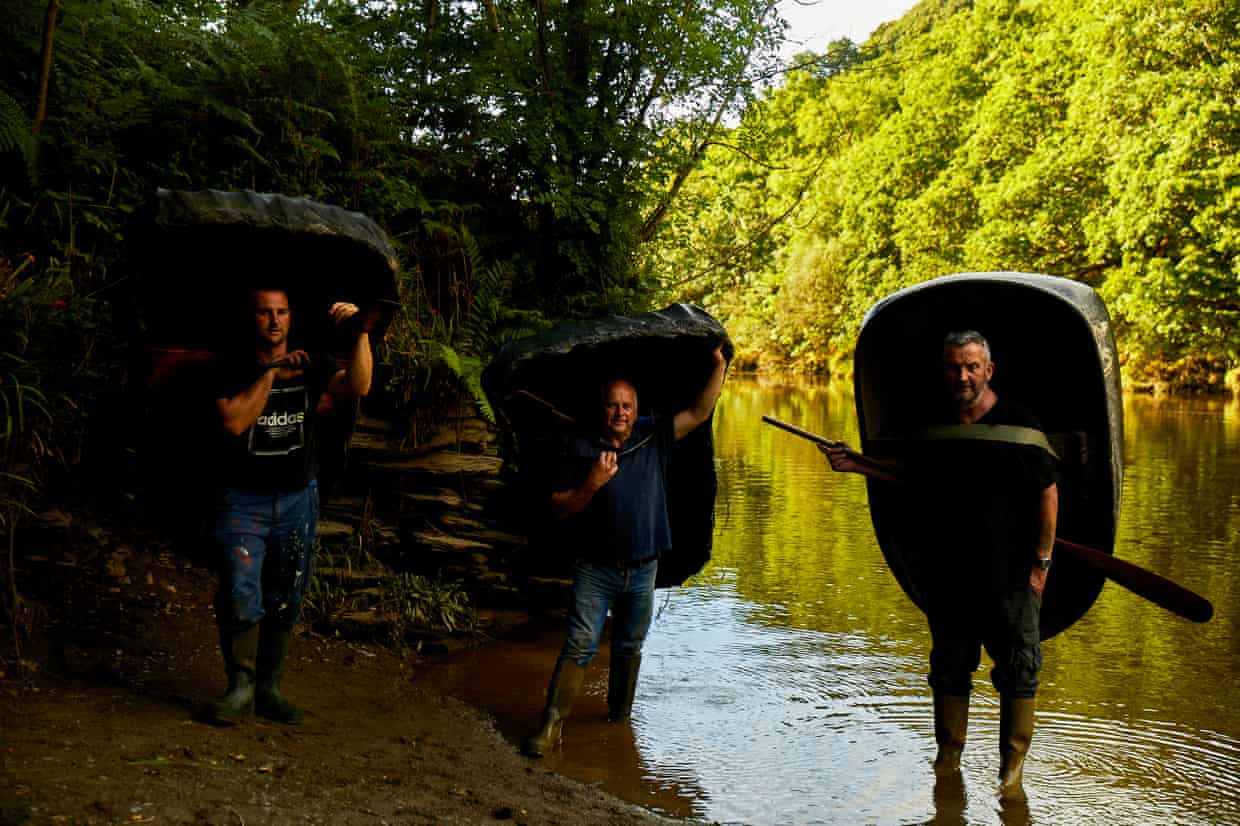https://www.theguardian.com/environment/2023/sep/02/the-last-coracle-fishers-dwindling-fish-stocks-regulations
For generations, coracles have been used to fish for salmon and sea trout – known locally as sewin – on three Welsh rivers: the Teifi, Tywi and Taf. Light, nimble and manoeuvrable, each boat is made by hand, using a fabric skin stretched across a lathed wooden frame (although on the Tywi, the skin has been upgraded to fibreglass for durability). Traditionally, nets were made from twine, but nowadays they are nylon, weighted by coconut rope. The fishing is done by darkness because by day, the fish would spot the net: most nights, the netsmen start at 11pm and work through till 3 or 4am.
But after centuries of coracle fishing in west Wales, this ancient craft may be nearing its end. Alarmed by dramatic falls in fish stocks, Natural Resources Wales (NRW) has imposed bylaws restricting fishing rights on the Teifi, Tywi and Taf. Since 2020, fishers have been obliged to release any salmon caught, with size limits imposed on other species including sea trout. The net fishing season has also been shortened to three months, from May to July. The coracle season had previously begun in March.

Pollution, habitat loss, water quality, barriers to migration and disease are all considered to be factors, but the main culprit is climate breakdown. Since salmon rely on cold water as a trigger to spawn, the species is particularly susceptible to the effects of global heating. In the opinion of Andrew Thomas, restoration officer for the West Wales River Trust, unless stricter measures are taken it is a real possibility that salmon could vanish from the river altogether.
He says: “Years ago, there was plenty of fish for everybody. But it’s coming to the point where we’re getting really worried about the future. Something’s got to be done, and we’ve all got a part to play in that.”
The question is whether banning coracle fishing will make a difference. With 12 fishing licences on the Teifi, eight on the Tywi and one on the Taf, coracle fishermen argue their numbers are too small to have an impact, especially compared with far greater numbers of rod-and-line anglers.